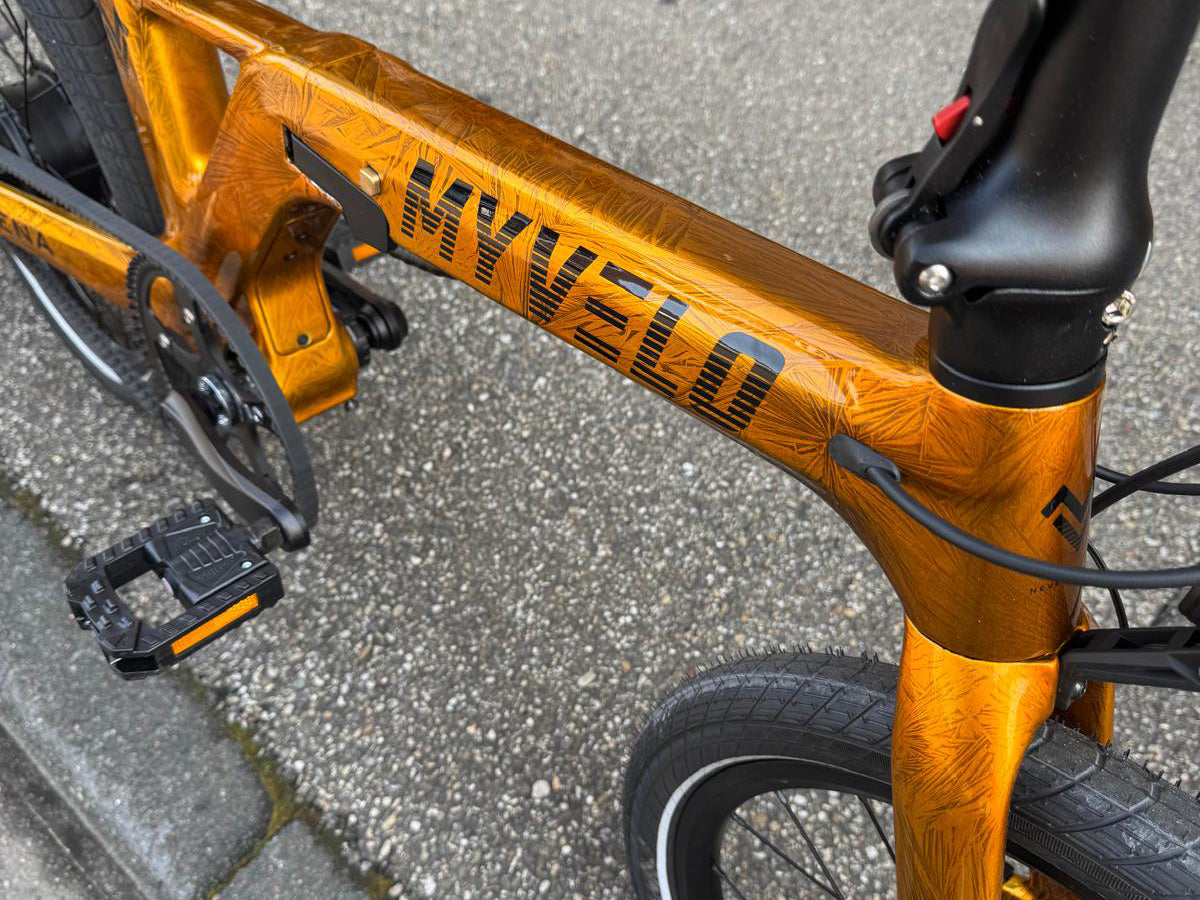

Carbon vs. aluminum bikes: advantages, disadvantages, and buying recommendations
Cyclists know that many factors play a role in choosing the right bike – from ride comfort to durability to speed. Two of the most common materials used in bicycle manufacturing are carbon and aluminum.
Von Isatou Schulz |
4 minutes read time

Both have their specific advantages and challenges. But which is the right material for you? In this article, we compare the two and give you guidance on which material is best suited to your needs.
Weight: Who wins the race?
Carbon:
Carbon fiber is known for its extremely low weight. A carbon frame is significantly lighter than an aluminum frame, which is especially beneficial for uphill rides and long distances. Less weight means you can accelerate faster and conserve more energy, especially when racing or touring your bike.
Aluminum:
Aluminum frames are slightly heavier than carbon frames, but they're still significantly lighter than many other materials, like steel. An aluminum frame can still give you a fast ride, but in terms of weight, carbon is clearly ahead.
Conclusion:
If you want a very lightweight bike, carbon is the better choice. However, if weight isn't quite as important to you, aluminum might be sufficient for you.
Stiffness and ride feel

Carbon:
Carbon frames offer exceptional stiffness, resulting in a very direct and precise ride. You'll especially appreciate the responsive and efficient power transfer during races or sporty rides. Furthermore, thanks to the special fiber weave, carbon can be tailored to specific areas of the frame, meaning the frame can be stiffer in areas like the bottom bracket or fork and more flexible in others.
Aluminum:
Aluminum frames are also stiff, but not quite as flexible as carbon. The ride can therefore be less comfortable, as aluminum absorbs fewer vibrations and the bike may be less "forward" on rougher roads or trails. This can result in a harsher ride on longer distances or uneven terrain.
Conclusion:
Carbon generally offers a sportier, stiffer, and more responsive ride. However, aluminum is perfectly adequate if you don't have extreme demands on stiffness and ride comfort.
Durability and longevity

Carbon:
Carbon is a strong material, but it's also more susceptible to damage from extreme impacts or shocks. Rough contact with a hard object can easily damage a carbon frame. This type of damage is often not immediately visible, making it difficult to assess the frame's full integrity. Nevertheless, under normal riding conditions, carbon is extremely durable and offers a long service life.
Aluminum:
Aluminum is more durable against bumps and scratches. An aluminum frame is less susceptible to sudden breakage or damage from impacts, making it particularly suitable for riders who ride on uneven terrain. However, aluminum can lose strength over time due to repeated stress and material fatigue.
Conclusion:
For riders who regularly ride on rough terrain or subject their bike to extreme wear and tear, aluminum may be the more robust choice. For everyone else, carbon still offers excellent durability, provided it's not subjected to excessive wear.
Value for money

Carbon:
Carbon bikes are expensive, especially for ultra-modern, lightweight frames. The price is justified by the advanced manufacturing technology and the more expensive materials. Carbon bikes are therefore more likely to be found in the premium segment and are particularly suitable for ambitious athletes or professionals.
Aluminum:
Aluminum is significantly cheaper than carbon, both in terms of manufacturing and the final product. Aluminum bikes offer good value for money and are the preferred choice for many hobby and casual cyclists. For the price of an aluminum frame, you can often get a very good, robust bike.
Conclusion:
If your budget is limited, aluminum offers excellent value. Carbon is ideal if you're willing to pay more for a lighter, stiffer, and faster bike.
Repair options
Carbon:
Repairing carbon frames can be expensive and difficult. If a crack or break occurs in the material, it is often necessary to have the frame professionally repaired, which incurs additional costs. In cases of severe damage, the entire frame may need to be replaced.
Aluminum:
Aluminum frames are much easier to repair. For minor dents or scratches, repairs are often faster and more cost-effective. Compared to carbon, aluminum frames are generally easier to maintain.
Conclusion:
If you prefer a bike that's easier to repair, aluminum is a better choice. However, carbon requires special care and maintenance.
Comfort and cushioning
Carbon:
Carbon has the advantage of absorbing vibrations well, which provides added comfort, especially on longer rides on uneven roads. Some carbon frames are designed to flex slightly, which smooths the ride without sacrificing stiffness.
Aluminum:
Aluminum frames are stiffer, which can result in a harsher ride. However, some manufacturers incorporate special design features such as modified tube shapes or a special damping system to improve comfort. Despite this, the comfort of aluminum frames often falls short of that of carbon.
Conclusion:
Carbon generally offers better comfort, especially on long rides. Aluminum is harder and may be less comfortable on long tours.
Carbon vs. aluminum – which material suits you?
Choose Carbon if:
-
You are a racing driver or ambitious sports driver who values weight and performance.
-
You are willing to invest more in your bike.
Choose aluminum if:
-
You are looking for good value for money.
-
You are looking for a robust bike for everyday use or longer tours.
-
You prefer a less stiff but more comfortable riding experience.
Both materials have their advantages and disadvantages, and the choice ultimately depends on your personal preferences and riding style. Regardless of which material you choose, make sure the bike fits your needs and brings you joy on your rides!





